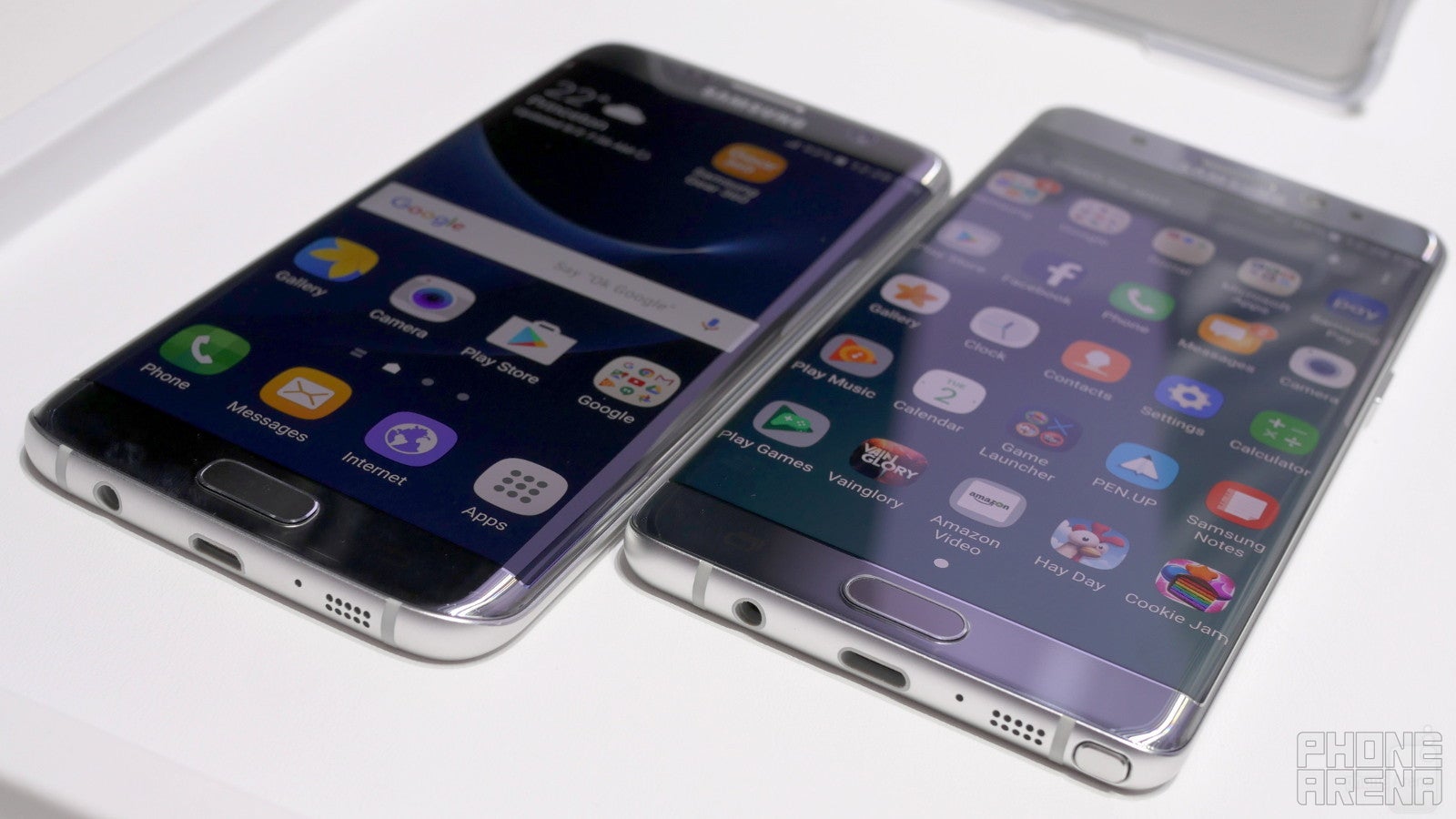Galaxy Note 7 vs Galaxy S7 edge: curved screens in the house!

While the Galaxy S7 edge has curved front and back glass panels, the Note 7 ups the degree of curvature on that rear glass, giving it a shape that matches the front glass for a perfectly symmetrical construction.
Internally, though, the GS7 edge and Galaxy Note 7 are very similar smartphones, powered by the same processors, sporting the same 4GB of RAM, and featuring the same very-highly-regarded 12MP camera. That's a nice decision on Samsung's part that lets users decide between the Note and GS7 edge based on things like screen size and the availability of the Note's S Pen stylus, while taking general performance out of the equation.
Samsung's making the smart move to give the Note 7 the same IP68 water resistance as the GS7 edge, and that protection even extends to the phablet's stylus, letting you write on the phone's screen while fully underwater. That could prove to be a huge asset, as capacitive touchscreens just don't work great when wet.
There's so much similar about these two phones that we can understand it being difficult to make a purchasing decision between the two of them. Do you go with a slightly more compact handset and a bigger battery, or a bigger phone that delivers stylus support? We haven't even mentioned the Note 7's big security upgrade, picking up another front-facing camera for iris-scan authentication. That may not drive you to pick up the Note 7 on its own, but it certainly adds to the list of reasons why you might want to go with this phone over the S7 edge. Of course, pricing will also end up factoring in, and for the moment we don't have a final retail price for the Note 7 – but you can bet it will fetch a pretty penny.

Follow us on Google News











Things that are NOT allowed:
To help keep our community safe and free from spam, we apply temporary limits to newly created accounts: